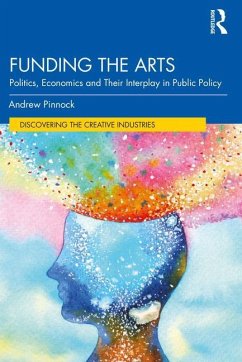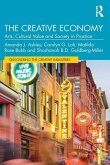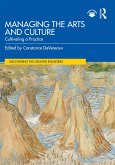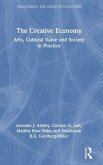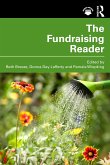Who funds creative and cultural projects, and why? This insightful book analyses how the arts have been funded in a variety of political environments, helping readers understand how politics and economics intersect to support cultural life.
Employing the UK Arts Council as an historical case study, the author explores the politics of arts funding and how artists and audiences adapt their behaviour around evolving incentives. In focusing on how arts funding has worked in practice, the book allows readers to develop their understanding of economics principles in the cultural sector.
With a balance between historical and contemporary themes, the book provides fundamental insights into cultural economics and policy. As such it is required reading for students and practitioners who want to know how arts funding professionals make decisions.
Employing the UK Arts Council as an historical case study, the author explores the politics of arts funding and how artists and audiences adapt their behaviour around evolving incentives. In focusing on how arts funding has worked in practice, the book allows readers to develop their understanding of economics principles in the cultural sector.
With a balance between historical and contemporary themes, the book provides fundamental insights into cultural economics and policy. As such it is required reading for students and practitioners who want to know how arts funding professionals make decisions.
"Both a fascinating examination and a bracing critique, Funding the Arts is essential reading for anyone interested in how we make a fairer and more sustainable cultural sector." Dave O'Brien, Professor of Cultural and Creative Industries, University of Sheffield, UK.
"An important contribution to challenging funding norms, while offering some practical solutions to addressing the contradictions." Josephine Caust, International Journal of Cultural Policy
"The Arts Council once existed for its clients, now it appears the other way round ... Pinnock's book shows how this has come about." Robert Hewison, Cultural Trends
"A comprehensive and useful primer on the politics of funding mechanisms. Pinnock's experience and understanding of the landscape of arts funding and cultural policy in the UK is evident and makes the book a welcome resource." Megan A. Johnson, The Journal of Arts Management, Law, and Society
"An important contribution to challenging funding norms, while offering some practical solutions to addressing the contradictions." Josephine Caust, International Journal of Cultural Policy
"The Arts Council once existed for its clients, now it appears the other way round ... Pinnock's book shows how this has come about." Robert Hewison, Cultural Trends
"A comprehensive and useful primer on the politics of funding mechanisms. Pinnock's experience and understanding of the landscape of arts funding and cultural policy in the UK is evident and makes the book a welcome resource." Megan A. Johnson, The Journal of Arts Management, Law, and Society

